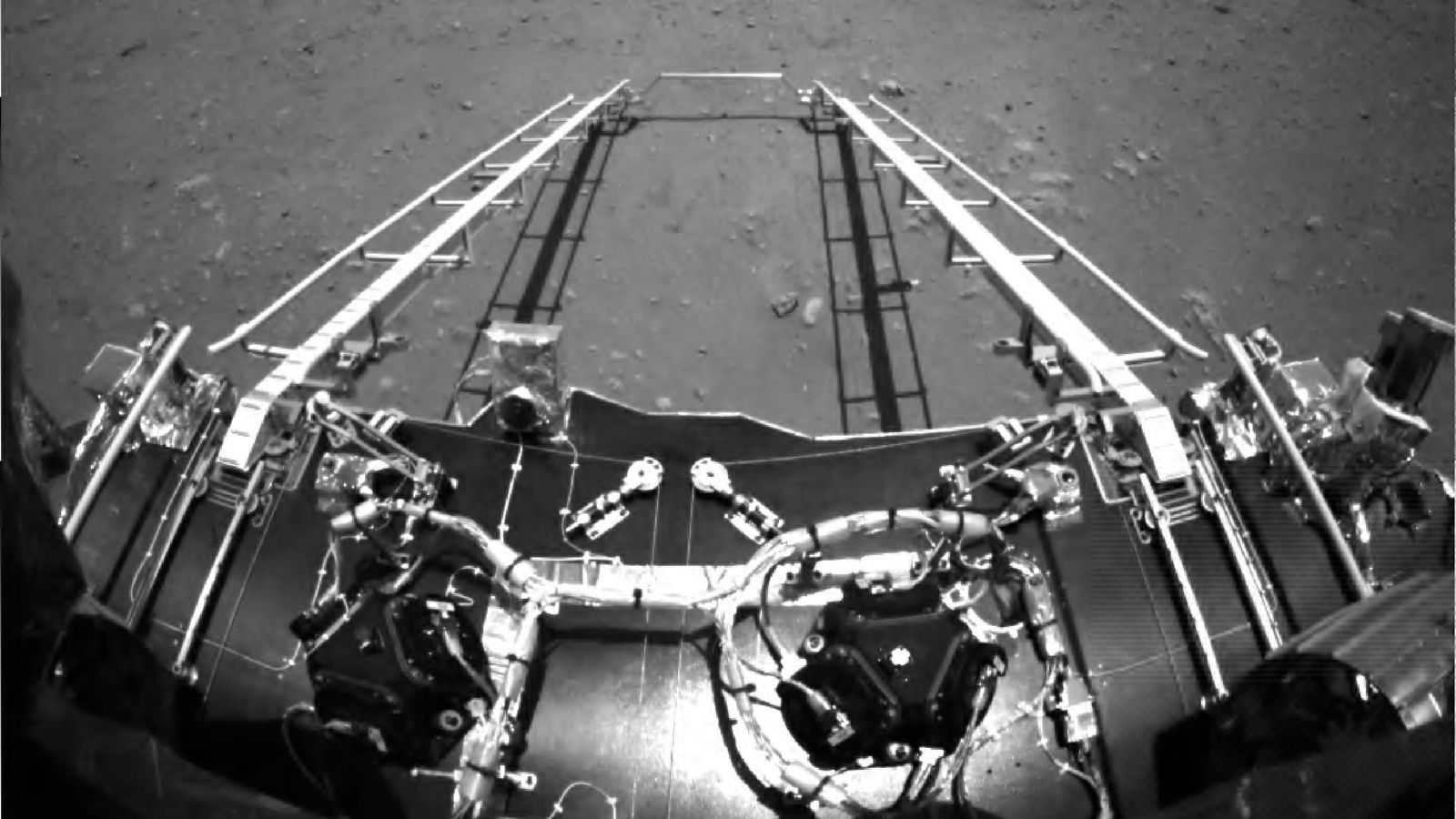China’s first Mars rover has driven down the ramp of its landing capsule and is now roaming the surface of the red planet.
The solar-powered vehicle ventured out onto Martian soil on Saturday morning, the China National Space Administration said.
China landed the spacecraft carrying the rover on Mars last week.
It is the second country to do so, after the United States.
Named after the Chinese god of fire, Zhurong, the rover had been running diagnostics tests for several days before it began its exploratory journey.
Weighing 240kg (530lb), it has six scientific instruments including a high-resolution topography camera and will study the planet’s surface soil and atmosphere.
It will also look for signs of life, including any subsurface water and ice, using a ground-penetrating radar during its 90-day exploration of the Martian surface.
China’s uncrewed Tianwen-1 spacecraft blasted off from the southern Chinese island of Hainan in July last year.
After a journey of more than six months, Tianwen-1 reached Mars in February and had been orbiting the planet.
On 15 May, the landing capsule carrying the rover separated from the mother ship and touched down on a vast plain known as Utopia Planitia.
Please use Chrome browser for a more accessible video player
The US also has an ongoing Mars mission, with NASA’s Perseverance rover and a tiny helicopter exploring the planet.
Perseverance and Zhurong are among three robotic rovers operating on Mars.
The third is NASA’s Curiosity, which landed in 2012.
NASA’s InSight, which arrived on the surface of the planet in 2018 to study its interior, is a stationary module.
A probe launched by the United Arab Emirates is also currently orbiting above Mars, gathering data on its weather and atmosphere.
Please use Chrome browser for a more accessible video player
Beijing has ambitious space plans that include launching a crewed orbital station and a human moon-landing.
China in 2019 became the first country to land a space probe on the little-explored far side of the moon, and in December returned lunar rocks to Earth for the first time since the 1970s.






















